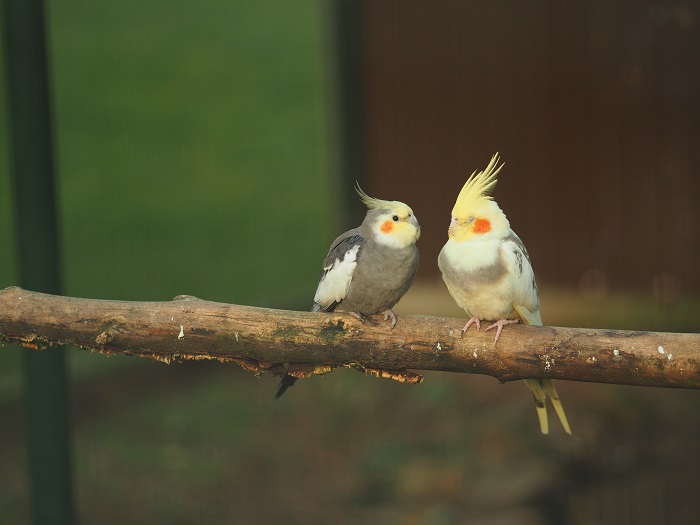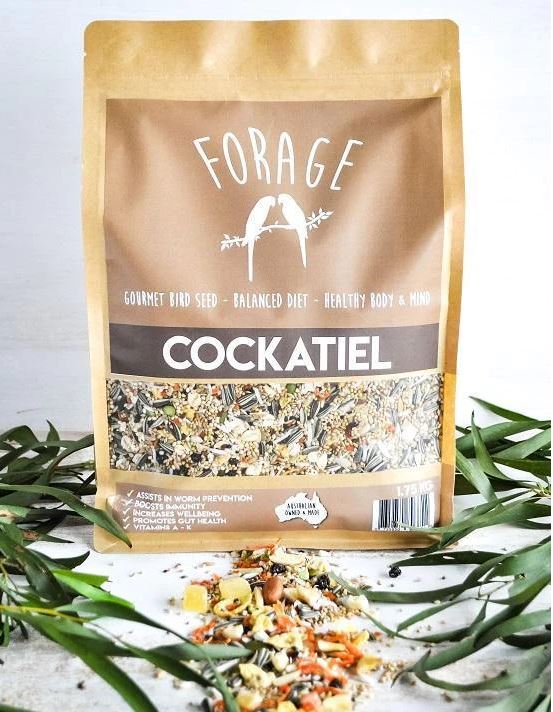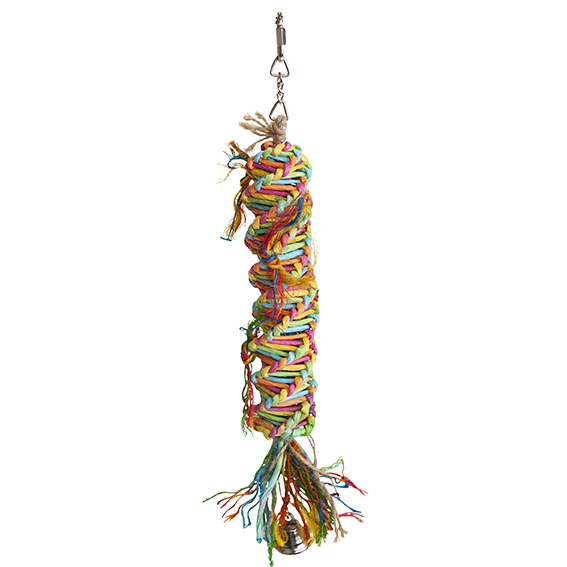How to Care For Your Pet Cockatiel: The Complete Guide
By: Pet City On: 24 April 2023
Cockatiels are lovely, Australian birds who are chirpy and chatty, friendly and cuddly.  Pet City has a sky full of birds for your to peruse, such as budgies, galahs and, of course, cockatiels. In this article, we will share our knowledge of bird care with you, and focus on the gorgeous little fellah that is the Australian cockatiel.
Pet City has a sky full of birds for your to peruse, such as budgies, galahs and, of course, cockatiels. In this article, we will share our knowledge of bird care with you, and focus on the gorgeous little fellah that is the Australian cockatiel.
Quick Facts About Cockatiels
Here is the skinny on the cockatiel:
- Perfect for beginner pet owners.
- Temperament- cuddly and comical and very inquisitive.
- Size- small. They can grow up to 30cm long.
- Lifespan- can easily live for 15 years or more.
- Intelligence- smart, can learn commands. Doesn’t often ‘speak’.
- Diet - seeds, and pellets. Scatter some on the floor of their cage, as in the wild, they like to forage for seeds. Include some shell grit to help with digestion.
About Cockatiels
Cockatiels (Nymphicus hollandicus), are the smallest of the Australian cockatoo family. They originate from the semi-arid regions of inland Australia. They forage for seeds on the ground, and since they are in arid, plainlands, they don’t have a loud screech, but a much quieter whistle and burble.
Male cockatiels are renowned singers, who use their singing range to serenade their female companions.
They are playful little birds and cuddly as well and are known for sitting on shoulders and snuggling into ears and hair.
Cockatiels can be easily startled. If their crest feathers are standing up straight, they are on alert or highly curious. If their crest feathers are flattened, they can be stressed and defensive. If their crest feathers are slightly off their head, and their cheek feathers are puffy and fluffy, they are relaxed and happy and ready to play.
What To Consider Before Buying a Pet Cockatiel
A lot of joy can be had from owning a cockatiel. Birdie kisses and whistling serenades, for example. But are you ready for the responsibility of pet ownership? Here are some simple questions to ask yourself as well as thoughts to ponder before buying a pet cockatiel:
- Do you have the time? A cockatiel, as with any bird you own, needs love and attention. They need time out of a cage too. You can’t just leave a bird in a cage and change the food and water once a day. You need to invest time with your bird to ensure their happiness.
- Don’t buy a cockatiel on a whim. Birds will chatter and sing and make noises. You will need to clean the cage and around the cage. Cockatiels can live for 15 years or more. If you’re not 100% sure you want a bird, it can be a long time to regret your choice.
- Are you bringing them into a bird-friendly environment? Cockatiels like to scrounge around on the ground. In your home, they will flutter to the carpet to play around. If you have a cat or a busy household, this could be risky for the bird. Getting caught by the cat, or being accidentally stepped on.
- Do you have the space for a Cockatiel? They need a large cage, with different perches to flitter around in. If you have a small, 1 bedroom apartment, a tiny cage might not be good for your bird to live in.
If you've considered the above and you think that your lifestyle could support buying a new best friend. You're ready to start thinking about how to set up your home for your pet cockatiel.
Housing Options for Your Cockatiel
The best option for housing your cockatiel is in a large bird cage, up high. We have some cage mounts and stands that can help elevate your Cockatiel. It needs to be big enough that they can flutter from perch to perch, and scramble around on the floor of the cage too. Some other essentials include:
- A cage cover is a good idea for them to feel secure in the evenings.
- A bird bath that clips onto the side of the cage is good for a quick bath.
- Perches at different levels within the cage encourage hopping up and fluttering around the cage, stimulating them inside the cage.
How to Set Up Your Home for Your Pet Cockatiel
Cockatiels are social animals, so having their cage in the family room, or where a lot of people hang out, will benefit them.
Letting your cockatiel out to fly around your house is good for their health. It helps their physical health and their mental health, so they can perch on your shoulder, explore their larger home, and more. Never have doors or windows open when they do this. You don’t want them flying away into the larger world.
If your cockatiel manages to fly up onto your curtain rail, or a light fitting you can't reach, you may need a bird net to return them safely to their cages.
Have cleaning equipment handy too. They may make a mess on your furniture, or the floor, and the quicker you can clean it up, the less chance of permanent stains.
Understand that birds grip with their talons when they land on things, so there can be some scratching of furniture. Cockatiels are small, so it could be unnoticeable.
What to Feed Your Cockatiel? 
We suggest a mix of 25% seeds and 75% pellets as the standard diet for your cockatiel. Pet City sells specialised cockatiel bird seed for you.
You can feed your pet fresh vegetables, not cooked, and leafy greens, every other day if you’d like. They also don't mind snacking on fresh fruit as a treat. See all our bird food.
Make sure fresh water is always available for them to drink.
To easily ensure that your pet cockatiel always has both food & water available, check out our range of bird feeders & waterers.
How to Keep Your Cockatiel Happy
Cockatiels are lively and chirpy birds with big personalities. You want to keep them happy and engaged, so they stay this way. Here are some quick tips on how to keep them happy at home:
- Keep them happy inside their cages with different levels of perches, some mirrors, and bells, or how about a play gym?
- Outside the cage, you can talk to and pet your cockatiel, for sure, but you can also give your tiny bird some toys to play with.
- You can hang some colourful perches and ladders around the house, to encourage your bird to fly and perch off the ground. A small ball with a bell that they can boop around on the ground can be fun too.
- If your tiny cockatiel starts to scratch or dig at things with its beak, then some foraging toys or scratching posts placed strategically around your house can prevent destruction to your furniture.
- Take time every day to hold your cockatiel and play with them, for at least an hour.
If you follow the above recommendations, your cockatiel will be overwhelmed with joy and love you endlessly.
How to Keep Your Cockatiel Healthy
You want your cockatiel to be happy and healthy, naturally. At least twice a week, put a shallow bowl of warm water in their cage so they can bathe. Cockatiels get dusty because they forage on the ground, so they love to get a good clean.
Alternatively, you can mist warm water on them a few times a week so they can take a shower.
If your pet is feeling unwell, there will generally be some signs of distress. They can include:
- Change in appetite.
- Weight loss and feather loss.
- Sitting on the floor of their cage.
- Less activity and less preening and cleaning.
- A lot of sneezing.
If something feels off to you, different to their normal behaviour, take your bird to a vet for a further check-up.
We have a well-being for birds section you can read for more information.
Shop For Cockatiels at Pet City Mt Gravatt
Pet City has all you need to make your cockatiel a happy bird for years of joy and laughter.
We’re an Australian-owned and operated store with 65 years in business. Shop online, or if you’re in Brisbane, visit our store in Wishart.
Hope to see you soon!








